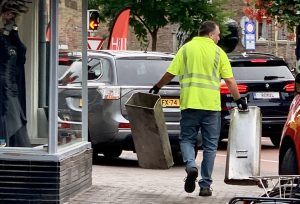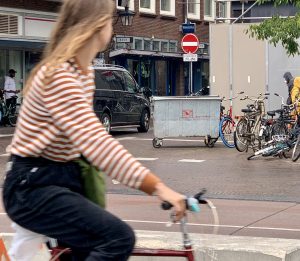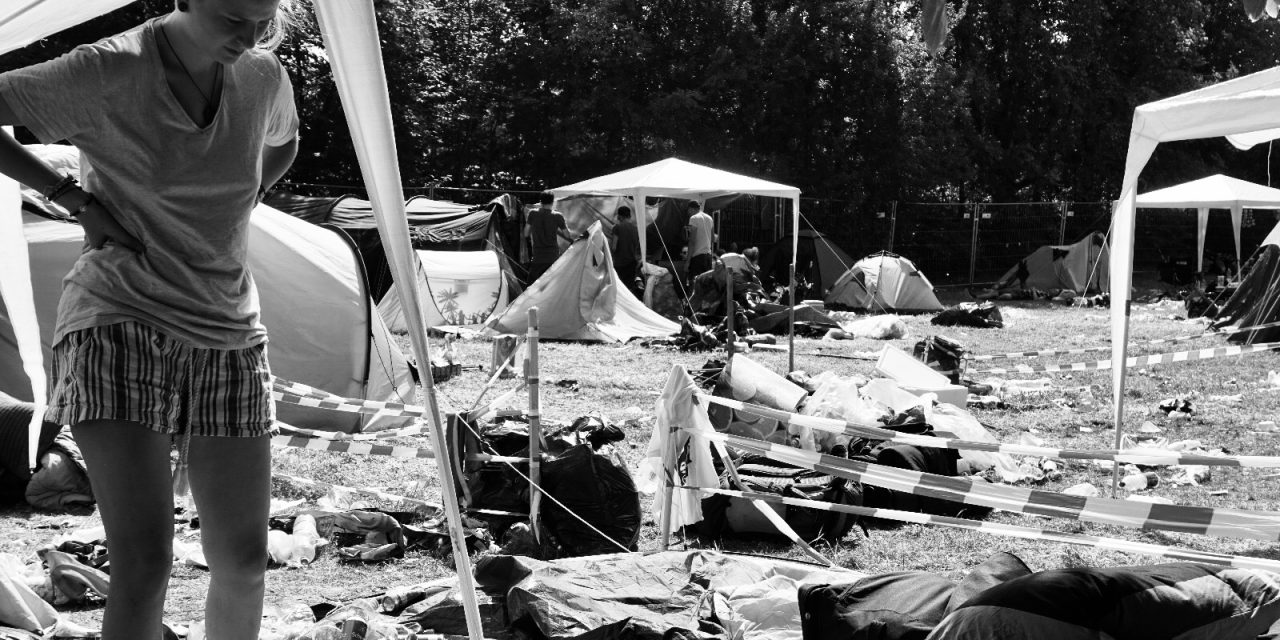As the European festival season for this summer comes to an end, the crowds disappear, leaving behind a huge environmental impact. With the European Green Deal aiming for a climate-friendly Europe by 2050, festivals can play a major role in this goal, particularly in realms such as transportation, energy consumption, food, and accommodation.
Across the continent, festivals like the UK’s Glastonbury or Lowlands and DGTL Amsterdam in the Netherlands have taken significant strides in integrating sustainability into their events. The efforts range from promoting the use of renewable energy sources and minimizing single-use plastics to offering green camping and innovative waste management strategies. The European Festival Association (YOUROPE) plays a crucial role in advocating for sustainability within the festival industry. Representing 118 festivals and associated members from 29 European countries, one of its objectives is to “foster event operations that are safe, responsible, fair, future-fit, and on all levels sustainable”.
Partying with Purpose
One of YOUROPE’s members, Austria’s Frequency Festival, first introduced its “Green Team” in 2013. The team is primarily comprised of young volunteers tasked with waste collection and post-festival clean-up. In return for their efforts, they receive green festival passes. This trend of young people wearing uniform shirts and acting as role models for others can be seen across Europe. But can partying and raising awareness for sustainability align?

Utrecht relies on companies for waste disposal, while at certain European festivals, young volunteers take on the task. ©️Eva Unterrainer
According to Fabienne Dietzen: yes. She volunteers for Viva con Agua, an NGO based in Hamburg. The organization promotes sustainability by collecting festival cups in Germany and Switzerland and using the proceeds to fund global water projects. Dietzen, who volunteered at the Southside Festival in Germany had a positive experience there: “You get to know lots of new people and can do something good in a very fun way”. She also acknowledged the rising awareness for water stations at European festivals: “We only work at festivals with deposit systems. There are more free refill options for those cups as well now”.
Ideals vs. Reality
However, while such initiatives appear promising, their practical implementation often faces challenges. A former Frequency Green Team staff member observed: “Festivalgoers often treat the event as a break from reality, disregarding the environmental impact. It’s frustrating for the team to clean an area, only for someone to litter right after”. Nonetheless, the volunteer added, that some visitors even offered the Green Team their help. They also got asked for garbage bags a lot, because at Frequency Festival 2022 waste disposal was constrained to just one garbage bag per person. The lack of accessible waste collection stations further exacerbated the issue. “People leave everything, even tents, and pavilions. Those big items all must go somewhere and there is not enough space for disposal”, the volunteer says. Unfortunately, in 2023, the festival’s Green Team was not established, and attempts to contact the festival operator went unanswered.

Utrecht city center: abundant waste containers. Some European Festivals: not so much. ©️Eva Unterrainer
Second Chances and New Beginnings
Interestingly, the tons of waste left behind after festivals also benefit some sustainable developments. Some things festival visitors leave behind become valuable resources for other people. Tents, chairs, sleeping bags, and other items, often in excellent condition, can be salvaged by anyone once the campsite reopens to the public. These items can either be sold or repurposed, while closed goods like tin cans and bottles can be consumed or recycled.
So, what sustainable actions can European festivals take to be better next summer? One key step is to strategically place waste collection stations throughout festival grounds and actively promote their use. Attendees should also be motivated to participate in waste reduction efforts, creating a culture of responsibility and sustainability within the festival community.




